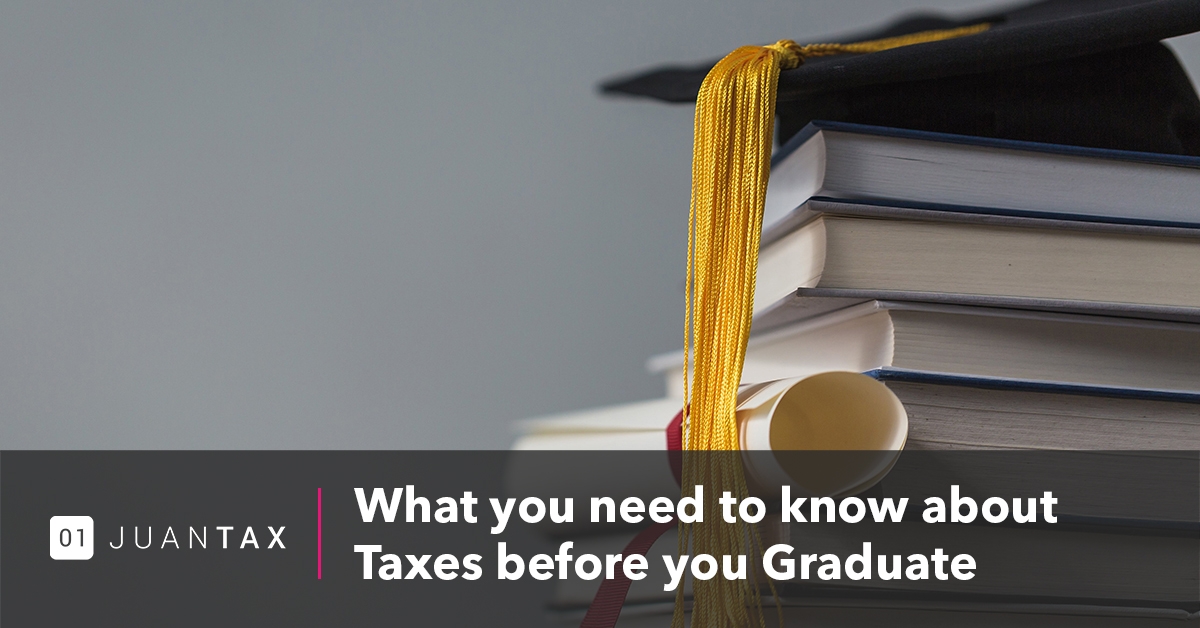A big problem with education in the Philippines is that some non-accounting students lack knowledge about filing taxes after they graduate. Some end up knowing by trial-and-error.

Another common scenario which new employees have is being surprised when their monthly take-home pay is less than their official monthly salary. This is because taxes are deducted to your salary.
In here, we created a guide about filing taxes for all those leaving schools and entering the lab (or what we usually refer to as the “real world”). Read up and be aware of how to do your taxes properly!
1. Common Terms
A tax is an amount of money you give to the government which comes from your income. This money is then used for public service such as building schools or paying public school teachers.
In the Philippines, the Bureau of Internal Revenue (BIR) is the institution responsible for collecting the taxes and penalizing the wrong-doers.
Every region in the Philippines is composed of various Regional District Offices (RDOs) to make services accessible to all registered taxpayers nationwide. The respective RDO near you, for example, is responsible for processing, monitoring, auditing of taxes, and many more
Further, any organization and individual who is gaining income from businesses and transaction in the Philippines are required to file an Income Tax. Said income tax is an annual tax taken from any earned income for the year.
2. Tax Rates
For 2018-2023, the tax rates in the Income Tax Table under the approved Tax Reform for Acceleration and Inclusion Law (TRAIN) are the following:
| Annual Income | Tax Rate |
| P250,000 and below | None (0%) |
| >P250,000 – P400,000 | 20% of excess over P250,000 |
| > P400,000 – P800,000 | P30,000 + 25% of excess over P400,000 |
| >P800,000 – P2,000,000 | P130,000 + 30% of excess over P800,000 |
3. Types of Taxes
There are many types of taxes in the Philippines, each for different activities and purposes. Below are the commonly known taxes in the Philippines (Income Tax is not listed since it was explained earlier):
- Value-Added Tax – A tax added to the sale of a product or service. It is an indirect tax which may be shouldered by the buyer.
- Estate Tax – A tax levied on the net value of a piece of land before it is passed down to a relative or recipient.
- Donor’s Tax – A tax imposed on a donation given to a certain living person or organization.
- Withholding Tax on Compensation – A tax on all individuals solely living on government compensation.
- Percentage Tax – Commonly used for freelancers or small businesses who have annual sales not exceeding P3,000,000.
4. Getting Ready for a New Job
If you are a new graduate and getting ready for a job, what you should prioritize is to apply for a Tax Identification Number or TIN.
First, you have to fill out the 1902 form (registration form). You may first ask your employer since they may already have a pre-signed form. Then, secure a copy of your NSO Birth Certificate and Valid ID.
Second, proceed to the Revenue District Office (RDO) with the jurisdiction of the place of your employer. In there, the officer will fill up the TIN in your form, sign and then seal your application. When done, you can see your TIN at the upper right corner of your application. After receiving your TIN number, you can then process your TIN ID in the same RDO.
Another document that you should prioritize getting is the National Bureau of Investigation or NBI Clearance. This serves as proof to your employer that you do not have any criminal liabilities. Also, this document, along with your TIN ID, is one of the requirements to open a bank account where your monthly payment will be deposited by your employer.
5. Freelancers Should Still Pay Their Taxes
Should you decide to be self-employed or go freelance, one thing you should remember that you should still file your taxes. However, the reality is most freelancers do not. Since you have no company that will do your taxes, it is now your responsibility to do so.
First, you need to register yourself as self-employed at the BIR. There are forms required such as form 1901 (registration form), form 0605 (payment form), and form 1906 (authority to print).
Other documents required are your birth certificate, barangay residence certification, cedula, TIN, and your expense book (ledger or journal).
Second, go to your RDO and register. There is a P500 annual registration fee, P15 certification fee, and P15 documentary stamp tax. Third, you will need to attend a seminar in order to get your Certificate of Registration.
6. Importance of Filing Your Taxes
The main reason why you pay your taxes is to give the government funds to implement projects which then will benefit us. Further, applying for loans or insurances may also require your ITR to show you are capable of paying.
In the case of freelancers and self-employed individuals, your ITR is proof that you are working in that certain period and been paying your dues.
Lastly, filing your taxes, without hitches and penalties, is a mark that you are a responsible citizen.











